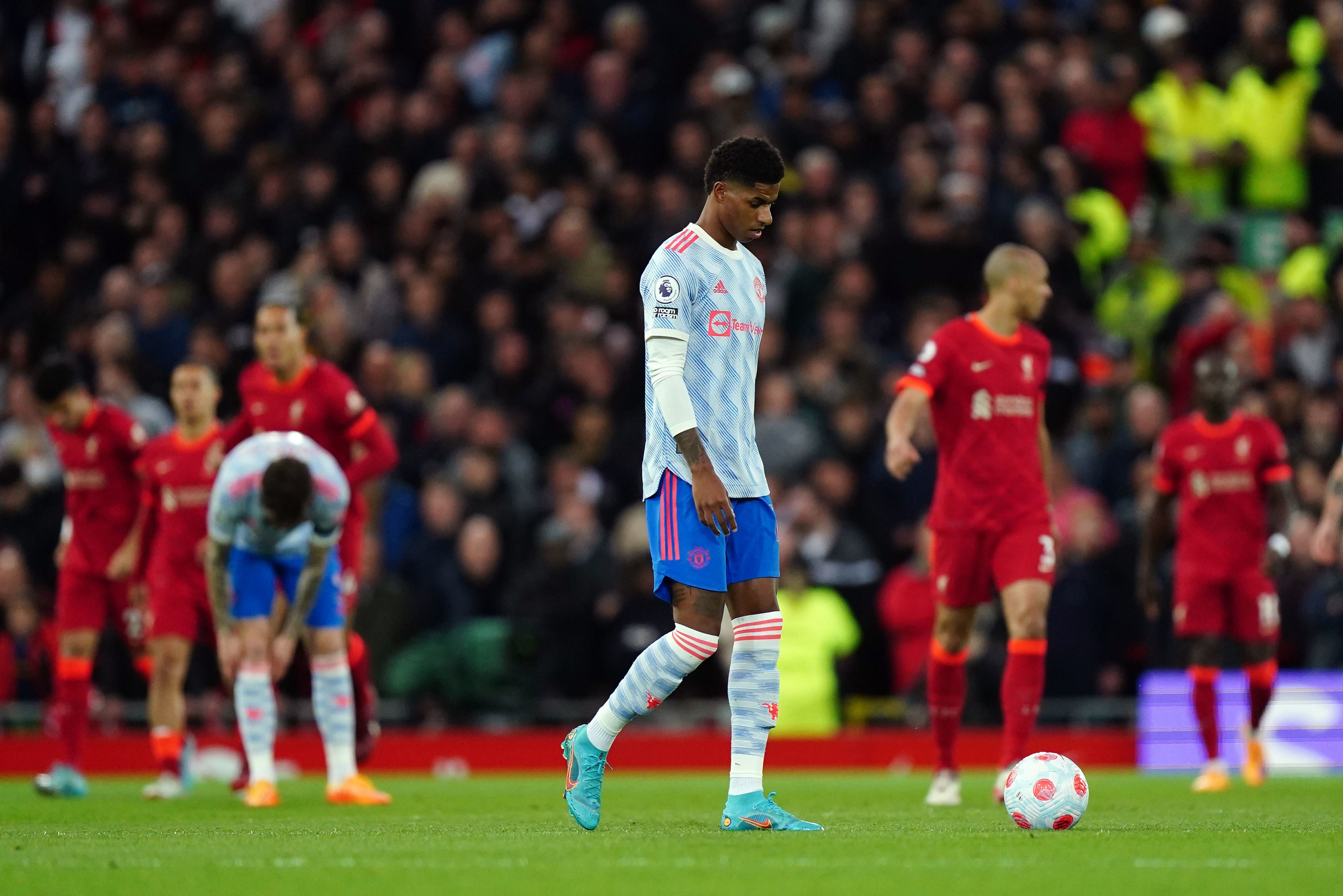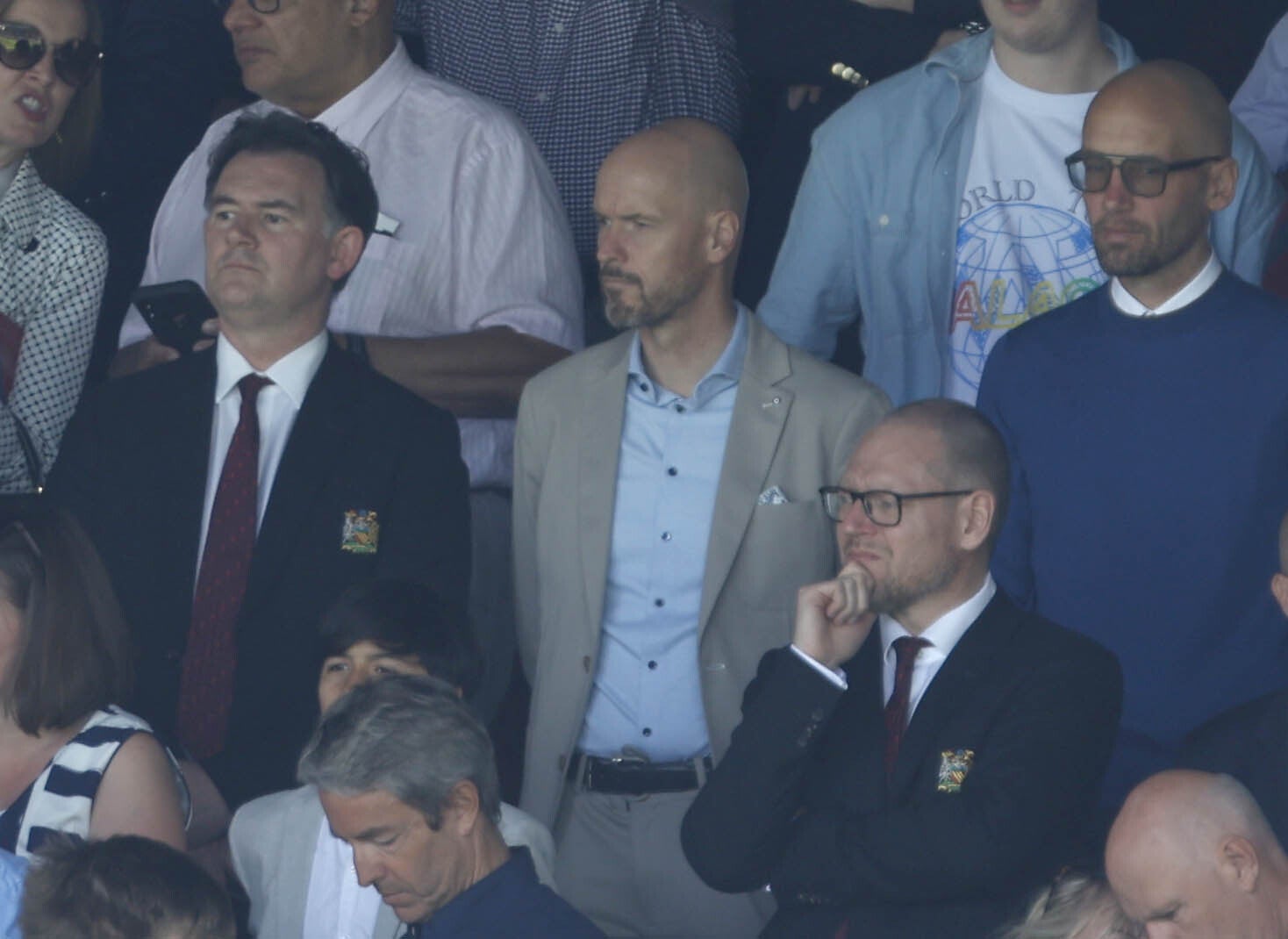
Expectations were low upon Ralf Rangnick’s appointment by Manchester United but even so, six months on, his interim spell can still only be described as a failure.
United’s worst-ever Premier League finish - a meagre 58 points - was already confirmed before the defeat away to Crystal Palace. It was a sixth consecutive defeat on the road and, though Rangnick’s side scraped into the Europa League by virtue of results elsewhere, they did so on a goal difference of a round zero.
Rangnick’s time in the dugout is now over. The Austrian national team job awaits, as well as his two-year consultancy role at Old Trafford. Already, the focus is quickly turning to United’s future under his permanent successor Erik ten Hag, who was in attendance at Selhurst Park and will be unveiled by the club less than 24 hours after the final whistle sounded on a miserable season.
Yet move on too quickly and United risk ignoring the lessons of six months that were supposed to go much better. Rangnick’s appointment was the first major decision led by Old Trafford’s restructured football department, which has driven the process behind the hiring of Ten Hag too. Many at the club hoped and expected for the new interim manager him to have a greater impact than he did, not least Rangnick himself.
The overwhelming sense is that this marriage between crisis club and interim manager was an ill-suited match. A well-respected figure within European football who built a reputation for taking a wider, long-term vision was instead appointed to - and readily accepted - a role focused on getting short-term results. Rangnick arrived as a coach with a firm, defined idea of how to play but had to find compromises and quick fixes within a squad that knew he would not be around for the long haul. That is not how he had previously worked, even if his most recent coaching experience before coming to Old Trafford was in similarly short-term roles at RB Leipzig.
There, he was part of an environment that he himself had built “down to the person sitting at reception”, as one source puts it. The task was simply to go in and manage a machine that he knew was already in full working order. United were a different proposition upon his arrival and still are, after six months in which his ability to push through changes was limited. While Rangnick anticipated many of the problems that he encountered, he is said to have underestimated the difficulty of solving them. Save the opening half an hour of his first game in charge, attempts to implement an aggressive, proactive high pressing style never really got off the starting block.
Sources say that it was not a case of the players being unwilling to press but being unable, as small, individual issues with such a style within United’s imbalanced squad had a multiplying effect. That much can be illustrated by going through the starting-line-up, from the back to the front. In goal, David de Gea’s reluctance to play off his line prevented United’s defence from being positioned higher up the pitch. Without a high defensive line, intense pressing from the front would create gaps in a midfield where the two highest profile names - Bruno Fernandes and Paul Pogba - are both best suited as No 10s and known for their abilities in possession rather than out of it.

And then up front, there was Cristiano Ronaldo. Rangnick brought up Ronaldo’s name unprompted in his final pre-match press conference on Friday when discussing United’s muddled style of play under his management, admitting that he is “not a pressing monster”. Others close to the club contend that pressing is “basically impossible” with Ronaldo leading the line, while giving him a free pass and insisting the rest of the team to pick up the slack would have had a damaging effect on the dressing room. Still, it was decided that having Ronaldo on the pitch was better than not. After all, with 12 goals in 22 appearances, he has been the only reliable centre-forward in the squad. Edinson Cavani’s fitness saw him start just five times under Rangnick, the most recent of those coming in February. Marcus Rashford’s cratering form is described as a “mystery”, despite a concerted effort on the training ground from the player and the coaching staff to get to the bottom of the problem. Many of those issues predated Rangnick’s time and were hardly a secret when he agreed to take charge. But others, such as Mason Greenwood’s arrest and subsequent suspension, could not be foreseen or accounted for.
The youngster was believed to epitomise the energy and application desired by Rangnick in United’s attack and would have been a key player during the second half of the season. Greenwood started all eight of the interim’s first 10 games in charge and all seven prior to him being unavailable for selection. He was not the only one who was considered well-suited to Rangnick’s methods, as the emergence of Anthony Elanga and Jadon Sancho’s increased playing time demonstrated. These were the exceptions rather than the rule, however, and once the pressing style was abandoned around Christmas, attempts to accommodate the abilities and preferences of other players in a “disparate” dressing room proved challenging. “There was not one unified view of the way to play”, one source says, given this squad comprises players signed by all of the club’s last five managers dating back to Sir Alex Ferguson. While some players wanted a more tactically detailed approach, others wanted greater freedom.
More than one of United’s forwards had reservations over how they were being used in the attack. Without the guiding principles of a club culture like Barcelona, Ajax or Bayern Munich, there was little to fall back on. In his infamously frank press conference appearances, Rangnick has repeatedly referenced Manchester City and Liverpool’s recruitment as the model for United to follow. They start with the idea, then buy players to fit. Over the past few years, United’s recruitment has been widely accused of doing the opposite. Players are signed then someone has to come up with the idea, it has been argued. In that respect, perhaps it is not surprising that the result out on the pitch is muddled and vague. There is a feeling that a clearer tactical compromise could have been found had there been greater continuity in the dugout. Sources say that Rangnick did not expect to lose Michael Carrick, who informed the club of his decision to leave on the day of his final game in caretaker charge against Arsenal.
Rangnick was set to start work as Carrick’s interim replacement in earnest the very next morning and spent the hours before kick-off trying to convince him to stay but without success. There was yet another blow when Kieran McKenna departed a couple of weeks later to become the new manager of Ipswich Town. Despite plenty of noise and whispers around McKenna’s coaching during the final days of Solskjaer’s tenure, Rangnick is said to have valued him as a good coach and useful voice who had ways of getting through to the players. He was missed once he left, while the interim nature of Rangnick’s role made finding replacements able to commit to a six-month stay difficult.

Rangnick’s influence at Old Trafford could extend beyond these six months, of course, but the significance of his two-year consultancy role is described as like any consultancy role - it depends on how much United want his advice. It is thought that part of it could be focused on setting up partnerships with other clubs across Europe, which are needed following the impact of Brexit on youth recruitment. Rangnick has forged a good relationship with chief executive Richard Arnold but his influence on this summer’s transfer policy has been minimal, with a decision taken not to cross roles and to focus on coaching. The most important advice that United’s interim manager imparts to anyone at Old Trafford could come in the next few days, when he is expected to give a full debriefing on his experiences at United to Ten Hag. Communication between the pair has been “fleeting” so far - a few WhatsApp exchanges, as revealed on Friday - but both agreed to wait until the end of their respective seasons before discussing anything in depth.
Ten Hag will hear of many problems to solve but, you expect, will still back himself to fix them. Rangnick felt exactly the same upon taking over. He is said to have no regrets over accepting the role, even if it turned out to require more compromise than expected. Given he hoped to have a much greater impact, there will be a good deal of soul-searching and introspection on his part. While he never fully believed in the players’ ability or readiness to implement the style he desired, it is also true that the squad never fully believed in his ability to turn results around as an interim manager either. And so as this experiment comes to an end, after the worst Premier League points total in the club’s history and no Champions League next season, it is fair to ask whether United were right to go down this path. One argument goes that by hiring an interim, they bought time to find the right permanent manager. If Ten Hag is a success, then the decision may be justified in the long run. But when it came down to selecting the man to be the six-month stop gap, even Rangnick himself would now accept that this was not the right fit.







